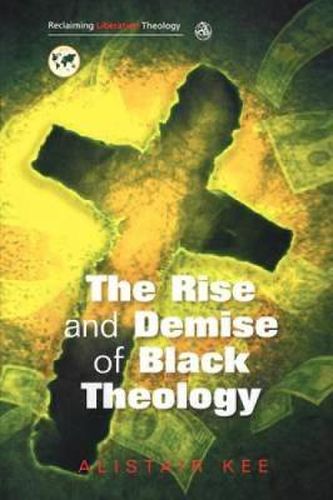Readings Newsletter
Become a Readings Member to make your shopping experience even easier.
Sign in or sign up for free!
You’re not far away from qualifying for FREE standard shipping within Australia
You’ve qualified for FREE standard shipping within Australia
The cart is loading…






This title is printed to order. This book may have been self-published. If so, we cannot guarantee the quality of the content. In the main most books will have gone through the editing process however some may not. We therefore suggest that you be aware of this before ordering this book. If in doubt check either the author or publisher’s details as we are unable to accept any returns unless they are faulty. Please contact us if you have any questions.
Black Theology emerged in the 1960s as a response to black consciousness. In South Africa, it is a critique of power; in the UK it is a political theology of black culture. The dominant form of Black Theology has been in the USA, originally influenced by Black Power and the critique of white racism. Since then, it claims to have broadened its perspective to include oppression on the grounds of race, gender and class. In this book, Alistair Kee contests this claim, arguing that Black and Womanist Theologies present inadequate analysis of race and gender and no account at all of class or economic oppression.With a few notable exceptions, Black Theology in the USA repeats the mantras of the 1970s, the discourse of modernity. Content with American capitalism, it fails to address the source of the impoverishment of black Americans at home. Content with a romantic image of Africa, this ‘African-American’ movement fails to defend contemporary Africa against predatory American global ambitions. Blacks in the West, Kee claims here, are no longer the victims; they are the voters and consumers who should be able to influence western governments - the American government in particular - into changing policies towards Africa in particular and the third world in general. This book does not argue that Black theologians should give up, but that they should move on, for the sake of the black poor in America, the black poor in Africa and the third world. The failure of Black theologians to do so is a cause for concern beyond the circle of practitioners of Black theology.
$9.00 standard shipping within Australia
FREE standard shipping within Australia for orders over $100.00
Express & International shipping calculated at checkout
This title is printed to order. This book may have been self-published. If so, we cannot guarantee the quality of the content. In the main most books will have gone through the editing process however some may not. We therefore suggest that you be aware of this before ordering this book. If in doubt check either the author or publisher’s details as we are unable to accept any returns unless they are faulty. Please contact us if you have any questions.
Black Theology emerged in the 1960s as a response to black consciousness. In South Africa, it is a critique of power; in the UK it is a political theology of black culture. The dominant form of Black Theology has been in the USA, originally influenced by Black Power and the critique of white racism. Since then, it claims to have broadened its perspective to include oppression on the grounds of race, gender and class. In this book, Alistair Kee contests this claim, arguing that Black and Womanist Theologies present inadequate analysis of race and gender and no account at all of class or economic oppression.With a few notable exceptions, Black Theology in the USA repeats the mantras of the 1970s, the discourse of modernity. Content with American capitalism, it fails to address the source of the impoverishment of black Americans at home. Content with a romantic image of Africa, this ‘African-American’ movement fails to defend contemporary Africa against predatory American global ambitions. Blacks in the West, Kee claims here, are no longer the victims; they are the voters and consumers who should be able to influence western governments - the American government in particular - into changing policies towards Africa in particular and the third world in general. This book does not argue that Black theologians should give up, but that they should move on, for the sake of the black poor in America, the black poor in Africa and the third world. The failure of Black theologians to do so is a cause for concern beyond the circle of practitioners of Black theology.